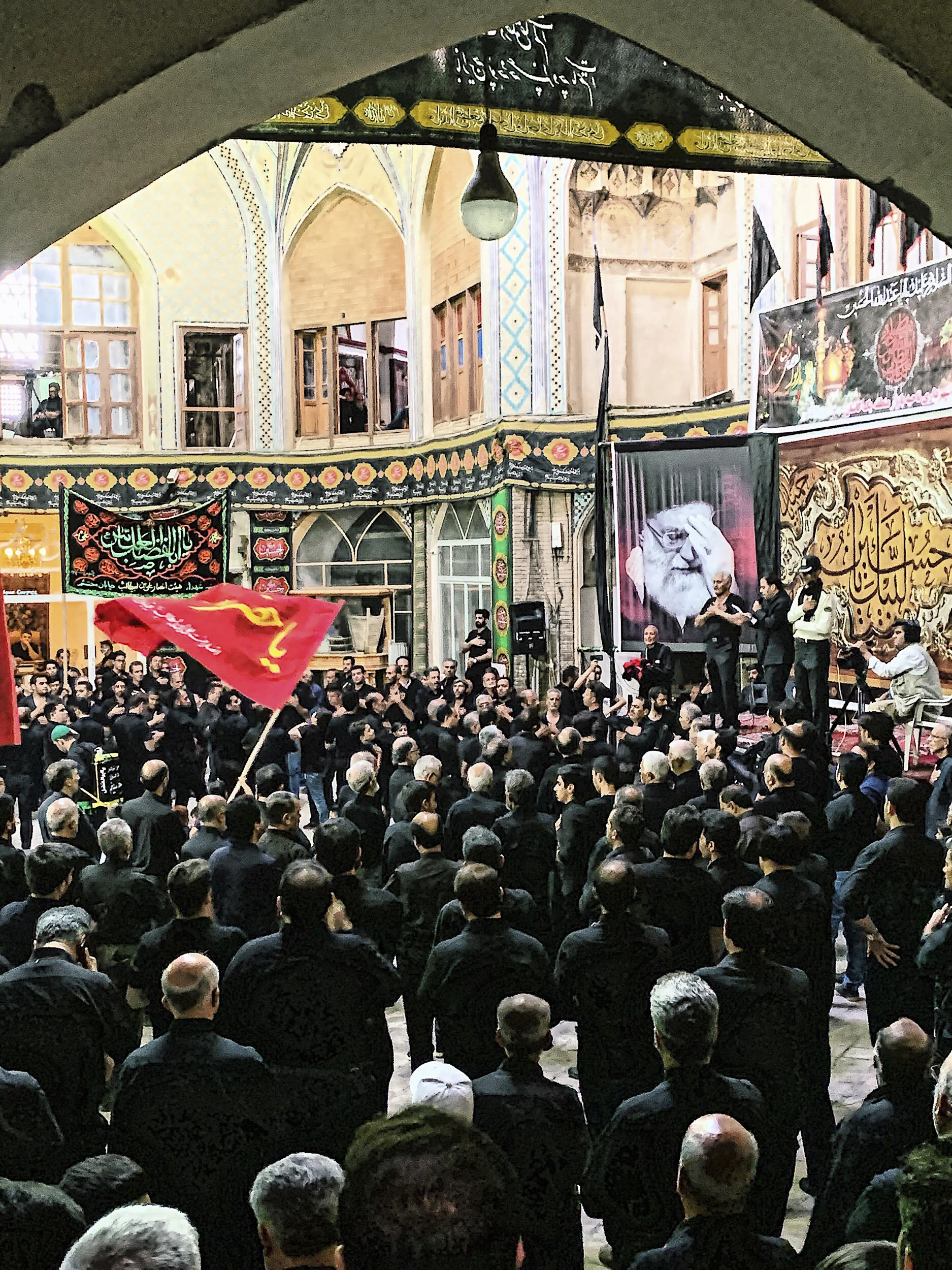Traveling in Iran During the Muharram
Traveling in Iran during the Muharram was a truly special experience. The only information I had about the Muharram before experiencing it, was that it’s a series of sad days marking the commemoration of the death of Imam Hossein. Maybe this is why I was blown away by the sights and experiences in the three days of the observances. My mind was free from prejudice and I took it all with an open heart. Once again, this attitude lead me straight into deep, honest conversations and connecting with people.
Please note that if you wish to learn about the religious aspect of the Muharram, it’s best to read in respective sources about Islam and ask your Muslim friends to explain you. This article is an account of my experience as a tourist during the Muharram Observances.
Kashan Market at night, during the Murarram Observances
I spent one day of the Muharram in Tehran, one day in Kashan and one day in Qazāān, a small village nearby Kashan. During these days people were wearing mainly black and if you wish to be immersed in the experience, I advice you to do the same. Nobody will expect this from you as a tourist, but it will be appreciated.
The three primary colors you will see during the Muharram are black, red and green. You will see black colored flags with hand sewn calligraphy in mosques and everywhere on the streets. The black color signifies the mourning. You will also see red color on the flags and on the streets. Even the water in the mosque fountains is painted with red dye. This is symbolic of blood, sacrifice, the death of the Imam. To complete the ambiance, green colored lights illuminate the streets at night. Green is the color of Islam and a symbol for peace. The streets at night were a remarkable sight to witness. Everywhere you look around, you see the city transformed completely by these three colors, it’s the kind of view that you know will stay locked in a memory in your heart forever.
In the last 3 days of the Muharram the streets were bustling and lively. People made food offerings, insisting that I take whatever they have to give: tea, sweets, watermelon, full meals with rice and lamb. If you do not wish to eat what is offered to you, take it and give it to someone else later. In Tehran, we were so stuffed with Hamid that we took the food and gave it to older, poorer people. It’s not polite to refuse food offered to you, as the act of giving is a promise of people to God that they will do good. If you refuse, it’s as if you deny them a chance to do goodness. You need to understand that taking what someone has to offer you is making them just as happy as for you to receive it. This act of giving and taking, the good intentions and the generosity behind it is, for me, the very essence of the commemoration.
The strongest feeling I experienced during the Muharram was a belonging to a large family. The sense of a united, supportive community was very powerful in these three days. People do everything together and the fact that I was a tourist from another faith had zero importance to them. They invited me to take part in everything - from sharing the meal together to having the honor to unlock a door in a mosque and inviting me to make a prayer. They were later curious what I wished for. When I said I wished for peace and prosperity for Iran and the whole Middle East their faces lit up in a big smile.
Lots of people will be curious about you, they will ask you anything - your country of origin, your age, even your family status or your job. For me, as a woman, only ladies and girls approached me, so I felt no intimidation of these questions and answered openly. Also, lots of selfies will happen, take it with a light heart and enjoy.
You will see many performances that recreate the death of Imam Hossein. The best place, and one of the most authentic ones in Iran to see such performance is in a village near Kashan called Qazāān. I ended up there by pure luck. While I stayed in the Puppet House Museum Guesthouse in Kashan, the owner Amir took his guests to witness this performance and we spent the full day in the village. It was one of my memorable days in Iran and as I’m writing these very words I have a big smile on my face thinking about all the people from Qazāān and their generosity.
Lastly, one of my favorite moments during the Muharram was in Kashan, a few cute little girls gathered around me because I was the only foreigner at a small mosque. Of course when this happens, a “selfie session” follows. The father of one of the girls joined us in the picture and told me “send this picture to the United Nations and tell them people in Iran are peaceful”. I certainly hope that somebody from the UN will see this blog post, bringing a message of peace.
I want to express my gratitude to Hamid, Amir and the people at his guesthouse, Sarah, Farid and his lovely friends who shared with me this experience of the Muharram. I hold dear memories of these few days thanks to their generosity and kindness.
Copyright © Alex Kovacheva, Nomad Photos. All rights reserved.

















